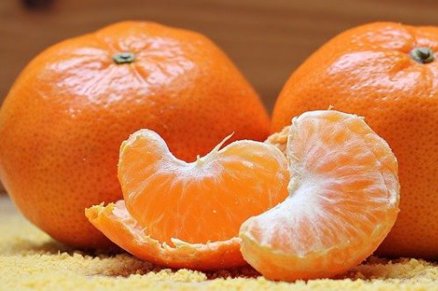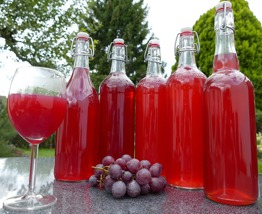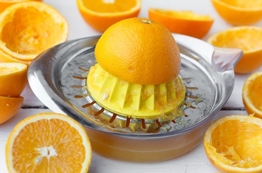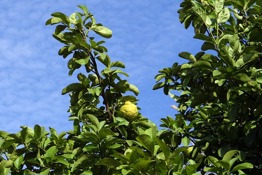Which types of produce have kedushat shevi'it?

Which crops have kedushat shevi'it and which crops do we treat as sacred due to doubt—classification according to type and purpose. Chapter 4 of the Consumer's Guide to Shemitah.
A. Halachic principles
- Shemitah sanctity applies only to produce that is consumed as it is enjoyed.[1]
- Crops are imbued with shemitah sanctity provided that all of the following conditions are present:
- Shemitah sanctity applies to the particular type of crop, as detailed below.
- The crop belongs to the shemitah.
- The crop grew on land belonging to a Jew.
- When a crop is imbued with shemitah sanctity, all of the following laws apply: the injunction to render it ownerless (hekfer), the prohibition to harvest (ketzirah and betzirah), the prohibition of causing it to be damaged or inedible (hefsed), the prohibition to trade with it, and the obligation of bi'ur.
B. Crops with shemitah sanctity
Any crop grown for any one of the following purposes is imbued with shemitah sanctity:[2]
- Human consumption.[3]
- Food intended for animal consumption,[4] such as barley, sorghum, etc.
- Etrogim grown for the arba minim. [5]
- Spices,[6] including: tea leaves, za'atar, rosemary, etc.
- Cosmetics,[7] such as jujube.
- Paint, including: gall for ink to paint tefillin or write Torah scrolls (mezuzot, etc.).[8]
- Laundry detergent.[9]
- Cottonseeds and cottonseed oil.[10]
C. Non-sacred crops
In contrast, the following crops do not contain shemitah sanctity:
- Unscented flowers.[11]
- Hadasim planted for the arba minim.[12]
- Lulavim. [13]
- Trees planted for firewood to heat the home.[14]
- Plants cultivated exclusively for medical uses (or to create homeopathic medicine) that are not used as food by healthy people.[15]
- Seeds and bulbs that are neither edible for humans or animals (such as onion seeds).
- Grass lawns.[16]
- Weeds.[17]
D. Crops with shemitah sanctity due to doubt
Today, we handle the following crops as sacred due to doubt:
[1] Mahari Kurkus 5:10.
[2] Regarding borderline crops, there is a halachic discussion whether we go according to the crop's standard use or according to a possible use; see: Shabbat Ha'aretz 7:13 §3; Shevet HaLevy II §199; Mishnat Yosef I §30, n. 2; Chazon Ish §14:10, s.v. nireh and vekol; Ma'aserot §1:30; Rabbi Auerbach (who maintains that we follow the plant's standard use, qtd. in Mishnat Yosef I §30); Hilchot Shevi'it §5, Kise David n. 9. On the question of when human intent can void shemitah sanctity from crops, see Shabbat Ha'aretz 5:21, end of §5; 5:3 §3; 5:11 §3; 7:14. See also Har Tzvi II §55.
[3] Rambam 5:2, 5:11. "Human food" includes foods that are only edible in extenuating circumstances, see Shabbat Ha'aretz 7:13 §3.
[4] Rambam 7:13. It turns out that camels are not included in the definition of beheimah, as they also eat thorns. Neither are animals in the zoo. Beheimah refers to domesticated animals that are usually raised as livestock, such as cows, sheep, goats, and chickens.
[5] Kerem Tziyon 13:26. See also Shabbat Ha'aretz 4:12 §8. Etrogim for the arba minim have shemitah sanctity only because they are edible.
[6] Shabbat Ha'aretz 5:22; 5:3 §5.
[7] According to Rambam 5:10, especially if its standard use is in a manner that its consumption and benefit occur at the same time.
[8] Minchat Shlomo §42, 51:13. See also Shabbat Ha'aretz 5:10 §2.
[9] On the rules of shemitah sanctity governing crops used for laundry detergent, see Shabbat Ha'aretz, ibid.
[10] On cotton seeds, see Rabbi Moshe Sternbuch, Shemitah Kehilchatah 2:10. Since cotton seeds are used for animal fodder, they are imbued with shemitah sanctity. Furthermore, cottonseed oil is edible so it also has shemitah sanctity. Most posekim hold that the cotton fibers are not sacred, since their benefit and consumption do not occur at the same time. However, Rabbi Eliahu holds that they nevertheless are sacred.
[11] Betzet Hashanah, p. 48 §3:2; Yeshu'at Moshe IV §30:2; Mishnat Yosef I §24, II §9. See also Shabbat Ha'aretz 7:19 §4.
[12] Since hadasim are grown for a mitzvah and not for their pleasant aroma, and "mitzvot were not given for enjoyment" (Rosh Hashanah 28a). See Sefer Hashemitah pp. 33–34, n. 11, Kerem Tziyon 13:26; Rabbi Auerbach, qtd. in Mishnat Yosef I §30. This is also the opinion of Rabbi Yisraeli. See Maharil Diskin (qtd. in Tzitz Hakodesh I §15:1), who writes that hadasim do not have shemitah sanctity; however, Kerem Tziyon (chap. 13, Gidulei Tziyon §16) maintains that this was possibly because in his time hadasim were grown on gentile property (however, if growing on Jewish property they may be sacred). According to Rabbi Eliahu, hadasim do have shemitah sanctity since the rest of the year they are grown for their pleasant scent.
[13] The plain understanding of Rambam 8:11. Minchat Shlomo 51:23, qtd. also in Mishnat Yosef I §30. See also Shabbat Ha'aretz 8:11 §1.
[14] According to Rambam 5:21, 7:14. See also Shabbat Ha'aretz 7:15 §1 and n. 6, that Rabbi Kook is stringent, and 8:11 §1 and n. 4.
[15] For the rules governing shemitah sanctity in medicinal plants, see Shabbat Ha'aretz 5:11 §2, that there are those who are stringent in this regard.
[16] Rabbi Zilber, Az Nidberu IV §66 and Mishnat Binyamin §36; Mishnat Yosef I §7 and §30 n. 2.
[17] Mishnat Yosef I §30; this is also the ruling of Rabbi Yisraeli.
[18] Yerushalmi, Shevi'it 7:1, deliberates on this matter. See Betzet Hashanah, p. 48, §3:3, who is stringent due to this doubt. This was the ruling of Rabbi Eliahu. See also Shabbat Ha'aretz 7:19 §3. "Fragrant flowers" are flowers whose fragrance is one of the main purposes for their cultivation. As of this year (5781), the vast majority of flowers do not fall into this category.
[19] According to Rabbi Kook (qtd. in Kerem Tziyon chap. 13, Gidulei Tziyon §12), mushrooms have shemitah sanctity. Rabbi Yisraeli rules accordingly. According to Rabbi Frank (Gidulei Tziyon, ibid.), mushrooms do not have shemitah sanctity. This is the ruling of Kerem Tziyon, ibid., §22 and Brit Olam §3:67 based on Me'iri, Avodah Zarah 14b. Rabbi Eliahu rules that mushrooms should be handled as sacred due to doubt unless grown indoors. Today (5781), most mushrooms in Israel are cultivated in closed buildings.




